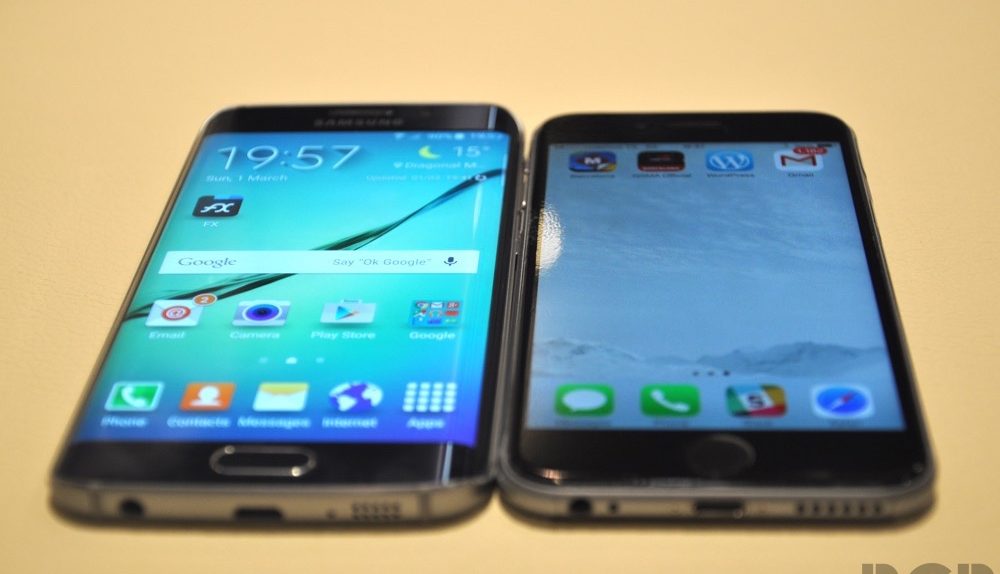Announced in early March, the Galaxy S6 family seemingly won’t help Samsung gain much ground in terms of smartphone profit share, with the iPhone 6 still selling in impressive numbers. According to recent estimates, Apple is expected to sell anywhere from 54 million to 58 million iPhone units in the first calendar quarter of the year, which would be record numbers for the period.
Meanwhile, the Galaxy S6 and Galaxy S6 edge release won’t make its mark on Samsung’s bottom line until next quarter, starting on April 10th when they’ll hit stores in some 20 markets.
FROM EARLIER: HTC One M9 might not beat Galaxy S6 to market after all
“At the moment of Samsung Electronics just recovering its confidence through the Galaxy S6, the continued uptrend of iPhones will be a large burden for Samsung,” a source in the industry told Business Korea. “The leader in the market will be decided only when the Galaxy S6 actually comes into the market.”
Morgan Stanley expects Apple to sell 54 million iPhones in the first quarter, the company revealed in a recent note, a 24% increase from the 43.7 million units the company sold in Q1 2014.
Similarly, UBS and Barclays say iPhone sales will reach 58 million and 54 million units, respectively, during the same period.
Apple surprised analysts with record-smashing iPhone sales in the December quarter, when it reported 74.5 million iPhone units sold. The number allowed it to surpass Samsung as the world’s top smartphone vendor for the period, though Samsung sold more smartphones overall in 2014 than Apple.
As always, the iPhone managed to bring in significantly more profit for Apple last year than the Galaxy family of devices did for Samsung.
The publication says that so far, Apple has sold 66.5 million of combined iPhone 6 and iPhone 6 Plus units, out of the over 700 million iPhones it shipped since launching the first model, though it’s not clear where the site’s exact number of iPhone 6 sales comes from. While Apple offers iPhone sales numbers each quarter, it never reveals the sales mix for different iPhone models.




